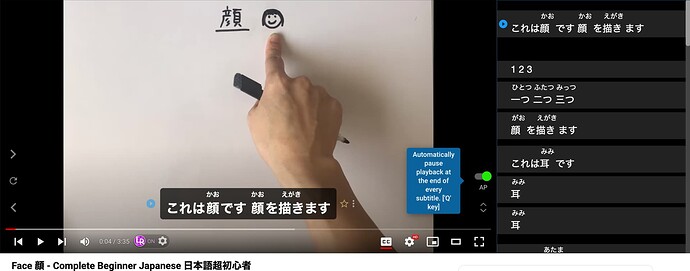Hello, I have started getting into watching anime only in Japanese with Japanese subtitles. At first I was just freely watching without pausing it and wasn’t getting anywhere but now I have been setting my media player to pause after every subtitle. I will try and work out what the sentence means and then move onto the next one. I have finally made my way through my first episode of anime doing this (it took me nearly 4 days). I am just not sure if this is right or not.
… I have also been giving Chat GPT the Japanese sentence and typing in what I think it means in English just to see if I’m close or not, again I’m not sure if this is a good or bad thing
Any advice?






